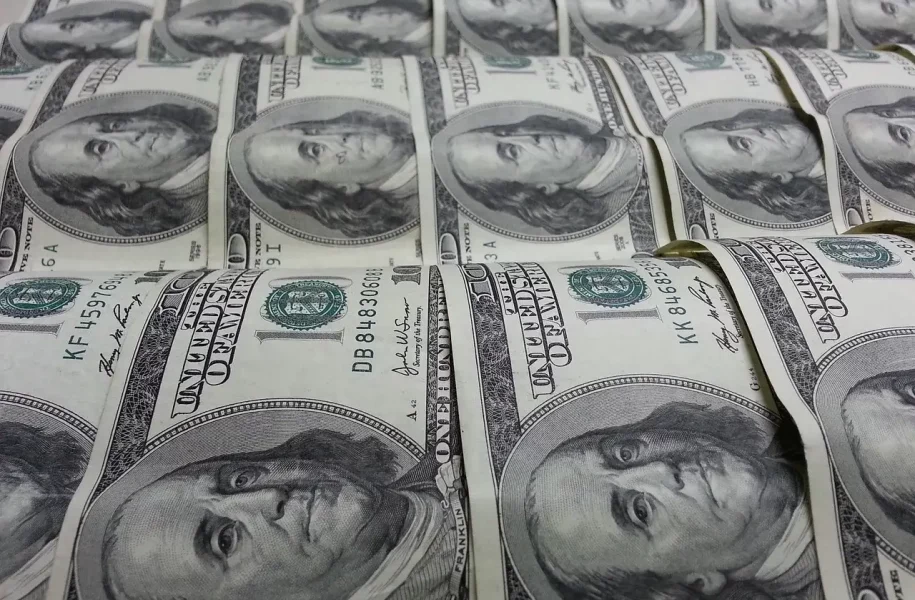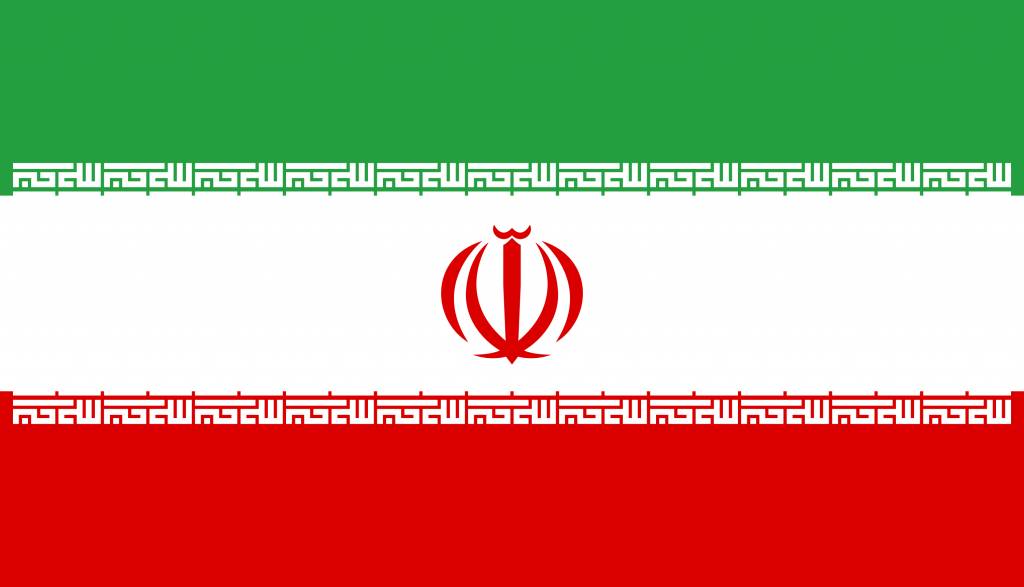Redefining Trade: The Global Movement Away from the Dollar

In recent years, a significant global movement has emerged aimed at reducing dependence on the United States dollar (USD) in international trade.
This de-dollarization trend, driven by various nations, has gained momentum, reshaping the global economic landscape.
Now let us look at the countries ditching the USD in favor of other national currencies.
 Argentina
Argentina
Argentina has announced its decision to utilize the yuan instead of U.S. dollars to pay for imports from China. This strategic move aims to safeguard the nation’s diminishing American currency reserves.
During a meeting in Buenos Aires with Chinese Ambassador Zou Xiaoli, Economy Minister Sergio Massa disclosed that Argentina had successfully negotiated agreements with multiple companies.
As a result, in April, they will settle over $1 billion worth of Chinese imports in yuan, and this trend will continue next month with an additional $790 million to $1 billion in imports.
 Brazil
Brazil
In March, Brazil and China agreed to trade using the Chinese Yuan instead of the U.S. dollar. This new arrangement allows for the direct exchange of yuan and reais, eliminating the need to convert currencies.
The Brazilian Trade and Investment Promotion Agency (ApexBrasil) has stated that this agreement is expected to reduce costs and enhance bilateral trade and investment.
READ MORE: AI Revolution: UBS Predicts Explosive Market Growth and Tech Investment Potential
Currently, China is Brazil’s primary trading partner, comprising over 20% of imports, with the United States following suit. Additionally, China is also Brazil’s largest export market, representing over one-third of all exports.
 China
China
China actively promotes the yuan as a viable alternative to the USD in international trade. This effort includes strategic initiatives within BRICS, SCO, and OPEC.
China is strategically emphasizing the yuan to counterbalance the dominance of the U.S. currency in global financial affairs. Tensions between the two economic giants have escalated across various fronts, ranging from trade and Taiwan to TikTok and semiconductor technology.
Notably, China’s recent utilization of its currency in response to sanctions against Russia highlights the yuan’s potential. This development has been more impactful in promoting the yuan over the past year than Xi’s government’s efforts in the preceding decade.
 India
India
According to reports from various Russian and Indian media outlets, India and Bangladesh have recently reached an agreement regarding their bilateral trade. As part of the deal, a portion of their trade transactions will be conducted using their respective currencies, namely the Indian rupee and the Bangladeshi taka.
The media outlets also noted that approximately $2 billion worth of Indian exports to Bangladesh, out of a total of around $13.69 billion in the previous fiscal year, will be traded in rupees, while the remainder will be paid in U.S. dollars.
On the other hand, Bangladeshi exports to India, which amounted to approximately $2 billion in 2022, will be entirely traded in rupees and takas.
This move follows the lead of 18 other nations, including Russia, Germany, the U.K., Singapore, Sri Lanka, Malaysia, Oman, and New Zealand, who have already begun settling their international trade with India using Indian rupees, as reported by the Hindustan Times.
The other countries on the list are Botswana, Fiji, Guyana, Israel, Kenya, Mauritius, Myanmar, Seychelles, Tanzania, and Uganda.
 Indonesia
Indonesia
Indonesia has joined a growing number of countries that have transitioned away from using the U.S. dollar for international trade and opted to utilize their own currency. The country’s central bank governor stated that Indonesia is following in the footsteps of BRICS nations in their de-dollarization efforts.
During a press conference held after the recent board of governors meeting, Perry Warjiyo, Governor of the Bank of Indonesia, announced the implementation of the local currency trade (LCT) system in Indonesia.
He emphasized that Indonesia has taken steps towards diversifying its currency usage through LCT, aligning with the direction taken by BRICS countries. Warjiyo further highlighted that Indonesia’s efforts in this regard are more tangible and concrete.
Indonesia has already begun engaging in non-dollar trade with various countries, including Thailand, Malaysia, China, and Japan.
 Iran
Iran
The United States-sanctioned country has recently decided to abandon the use of USD in its trade interactions with Russia and China.
Iran’s President, Ebrahim Raisi, has urged the Central Bank of Iran to take the necessary steps to transition away from the U.S. dollar for bilateral trade settlements. The aim is to primarily utilize the Iranian real whenever feasible.
The Central Bank of Iran has already commenced implementing this strategy, suggesting using Iranian reals for bilateral trade during a recent high-level meeting with Oman’s Minister of Commerce.
READ MORE: Crypto Bull Market on the Horizon: Insights from Mark Yusko
Raisi also emphasized the potential of the Syrian market and the mutual benefits that could arise from a deeper integration and trade partnership between the two countries.
Furthermore, Raisi recently reiterated Iran’s intention to join the BRICS bloc. This move aims to challenge the dominance exerted by the United States and other nations over the global stage, ultimately contributing to establishing a more balanced and multipolar world in the future.
 Iraq
Iraq
In an attempt to tackle the issue of volatile black market exchange rates, the Iraqi government recently implemented a ban on the utilization of the U.S. dollar in commercial transactions.
The primary objective of this measure is to promote the use of the Iraqi dinar within the country’s Forex markets. The government aims to bridge the gap between the official exchange rate and the prevailing rate in the black markets by reducing dependence on the U.S. dollar. This move is intended to strengthen Iraq’s native currency, the Iraqi dinar.
According to General Hussein Al Tamimi, the director of the operation directorate, individuals found in violation of this ban will be subject to a fine of one million Iraqi Dinars. Repeat offenders will face more severe consequences, such as an increased fine and a one-year prison term.
As part of its efforts to decrease reliance on the U.S. dollar, Iraq is also considering joining the BRICS alliance. This would enable the country to accept the alliance’s currency for cross-border transactions.
 Russia
Russia
Amidst the Russia-Ukraine conflict, Moscow has significantly reduced its reliance on the USD, opting for an alternative currency. The Chinese Yuan has emerged as a preferred choice for Russia in international trade, marking a notable shift. Additionally, Moscow is actively exploring the possibility of introducing a collaborative BRICS currency in the future.
Russia’s economy has found an alternative to Western financial networks and the U.S. dollar by embracing the Chinese yuan. The use of yuan for payment is becoming more prevalent among energy exporters.
The country’s sovereign-wealth fund, intended to support government spending affected by the costs of the conflict in Ukraine, is now storing its oil wealth in Chinese currency.
Russian companies are also borrowing in yuan, and individuals are choosing to save in it.
The increasing prominence of the Chinese currency within Russia strengthens the ties between two countries that have historically competed for global influence but have grown closer due to shared dissatisfaction with the West. Additionally, it aligns with China’s persistent, albeit largely unsuccessful, efforts to establish the yuan as a more significant player in global finance and commerce.
Additionally, Deputy Finance Minister Alexei Moiseev spoke at a conference and acknowledged that cryptocurrency is generally viewed as “evil,” it may be effective in certain situations, such as foreign trade activities.
 Saudi Arabia
Saudi Arabia
In January, during an event in Davos, Mohammed Al-Jadaan, the Finance Minister of Saudi Arabia, surprised journalists with his statement about the country’s willingness to engage in currency trading beyond the U.S. dollar. This development marked the first time such a shift was considered in almost five decades.
While these statements may appear insignificant at first glance, they imply a significant potential shift in the future, considering the historical ties between the U.S. and Saudi Arabia. Although Saudi Arabia has not yet abandoned the petrodollar, their recent activities suggest it may be exploring alternative possibilities. Given that Saudi Arabia plays a crucial role in the petrodollar system, if they were to, for instance, start trading oil in yuan, it could trigger a ripple effect, prompting other OPEC members to follow suit.
Al-Jadaan said, “We are open to exploring alternative currencies such as the euro or the Saudi riyal to settle our trade arrangements. There are no obstacles to discussing different options.”
These remarks signify a growing trend among influential nations worldwide, indicating a deliberate move towards reducing dependence on the U.S. dollar in the global economy.
On March 29, Saudi Arabia made an announcement declaring their acceptance as a “dialogue partner” of the Shanghai Cooperation Organisation. This organization is the largest regional political and defense alliance in terms of geographic scope and population.
 Venezuela
Venezuela
On Tuesday, Venezuela’s Presidenсt Nicolas Maduro announced that his country would move forward and ditch the U.S. dollar in economic transactions.
READ MORE: FedNow Speaks Out: Reassuring Americans on Account Freezing Rumors
The South American nation is the newest one to publicly share plans to abandon the U.S. currency after Argentina agreed to begin paying for imports in the Chinese Yuan.
Speaking to local media, Maduro said, “This is the path of Venezuela and the path of a free economy where currencies are not used to punish countries and impose sanctions.”
 Pakistan
Pakistan
According to reports, Pakistan is now procuring Russian oil at a discounted rate using the Chinese Yuan as an alternative currency. Government sources have confirmed this shift towards using a different currency for international settlements, as local media outlets have revealed.
The transaction itself is expected to be facilitated by the Bank of China, and the initial shipment of over 750,000 barrels is set to arrive in June. Pakistan’s decision to use the yuan for purchasing Russian oil marks a significant step in the ongoing efforts of BRICS to decrease dependence on the U.S. dollar in global trade.
Although the exact volume of oil being purchased by Pakistan and the specific payment method remain uncertain, reports indicate that the country has agreed to pay approximately $50 to $52 per barrel.














